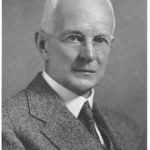
By Jason Feifer Jason Feifer (’02) is the editor in chief of Entrepreneur magazine, podcast host, and coauthor of the new novel Mr. Nice Guy. He lives in Brooklyn. A few weeks ago, I was invited to a dinner with some fellow media podcasters. Audio creators from Gizmodo, Vice, Atlas Obscura, and others were there.…







